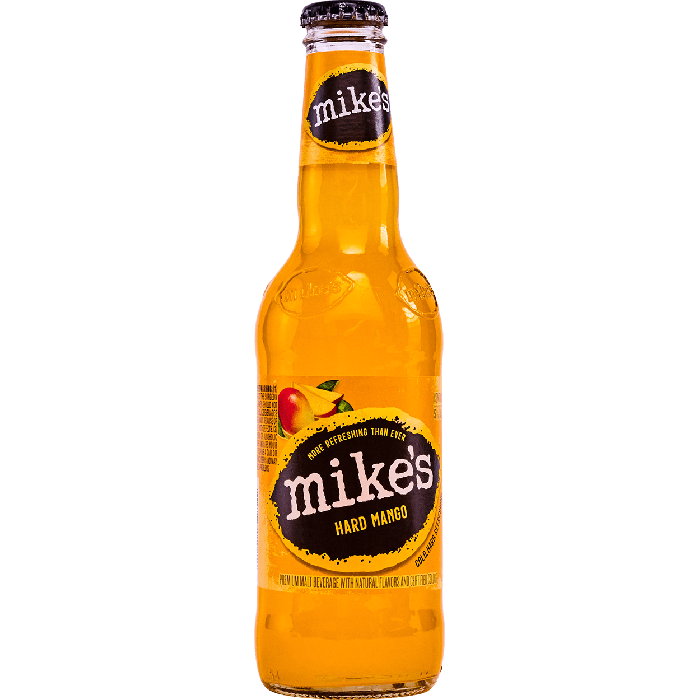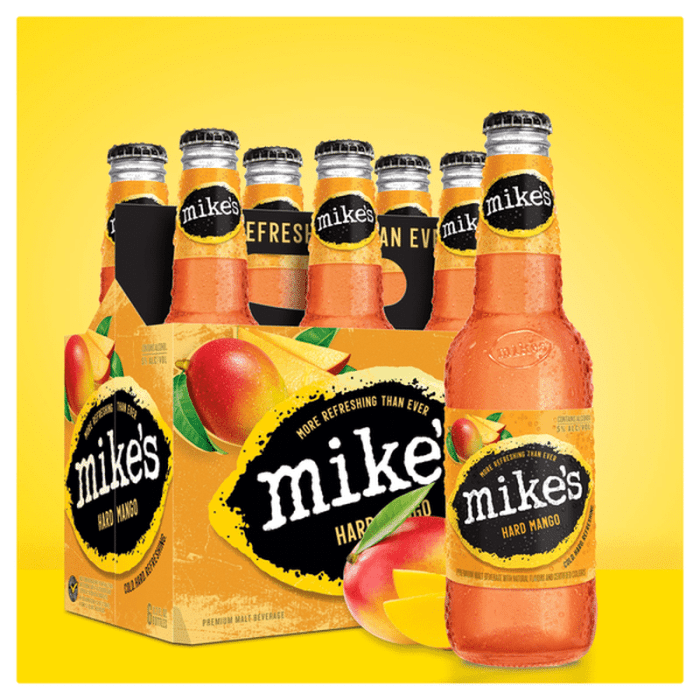Comparison with Other Alcoholic Beverages

Mike’s hard mango nutrition facts – Mike’s Hard Mango, while delicious, isn’t the only alcoholic beverage on the market. Understanding how its nutritional profile compares to others helps make informed choices about your consumption. This comparison focuses on readily available similar drinks, highlighting key differences in sugar, calorie, and alcohol content.
Nutritional Comparison of Similar Alcoholic Beverages, Mike’s hard mango nutrition facts
The following table compares Mike’s Hard Mango to other malt beverages and Mike’s Hard flavors. Note that nutritional information can vary slightly depending on the manufacturer and serving size. These values represent averages based on readily available data.
| Beverage | Sugar (grams per serving) | Calories (per serving) | Alcohol Percentage (%) |
|---|---|---|---|
| Mike’s Hard Mango | 18-20 | 220-240 | 5.0 |
| Mike’s Hard Lemonade | 16-18 | 200-220 | 5.0 |
| Another Malt Beverage (Brand A) | 15-17 | 180-200 | 4.5 |
| Another Malt Beverage (Brand B) | 22-24 | 250-270 | 5.5 |
As the table illustrates, there can be significant variations in sugar, calorie, and alcohol content across different malt beverages. While Mike’s Hard Mango falls within the typical range, consumers should be aware of these differences when choosing a drink. For example, Brand B’s higher sugar and calorie content compared to Mike’s Hard Mango highlights the importance of checking nutrition labels before consumption.
Serving Size and Consumption Recommendations

Mike’s Hard Mango, like any alcoholic beverage, should be consumed responsibly. Understanding the recommended serving size and the potential consequences of exceeding it is crucial for enjoying this drink safely and minimizing any negative health effects. Knowing your limits and respecting them is key to a positive experience.The recommended serving size for Mike’s Hard Mango is one 12-ounce (355ml) can.
Consuming more than this in a short period can significantly increase the risk of alcohol poisoning, impaired judgment, and accidents. Remember that individual responses to alcohol vary greatly depending on factors like body weight, metabolism, and overall health.
Responsible Consumption Guidelines
It’s important to establish healthy drinking habits to ensure you’re enjoying Mike’s Hard Mango – or any alcoholic beverage – safely and responsibly. Following these guidelines can help you minimize potential risks and make informed choices.
- Pace yourself: Don’t drink too quickly. Allow your body time to process the alcohol.
- Stay hydrated: Drink plenty of water throughout the evening to help prevent dehydration, a common side effect of alcohol consumption.
- Eat before and while drinking: Food helps to slow down the absorption of alcohol into your bloodstream.
- Know your limits: Pay attention to how you feel. If you start to feel unwell or impaired, stop drinking.
- Never drink and drive: Designate a driver or use a ride-sharing service if you plan to consume alcohol.
- Avoid mixing with other substances: Combining alcohol with other drugs or medications can have unpredictable and dangerous consequences.
- Be mindful of your surroundings: Drink responsibly and be aware of your environment to avoid risky situations.
FAQ Insights: Mike’s Hard Mango Nutrition Facts
Is Mike’s Hard Mango gluten-free?
Mike’s Hard Mango is typically gluten-free, but always check the label for the most up-to-date information as formulations can change.
How many carbs are in a can of Mike’s Hard Mango?
The carbohydrate content varies slightly depending on the specific can size and batch, so always refer to the nutrition label on the can for the most accurate information.
Does Mike’s Hard Mango contain artificial sweeteners?
Check the ingredient list on the specific can of Mike’s Hard Mango; the use of artificial sweeteners can vary depending on the production batch.
What are the long-term health risks associated with regularly drinking Mike’s Hard Mango?
Excessive alcohol consumption, regardless of the type of beverage, is linked to numerous long-term health risks, including liver damage, heart disease, and certain cancers. Moderation is key.

